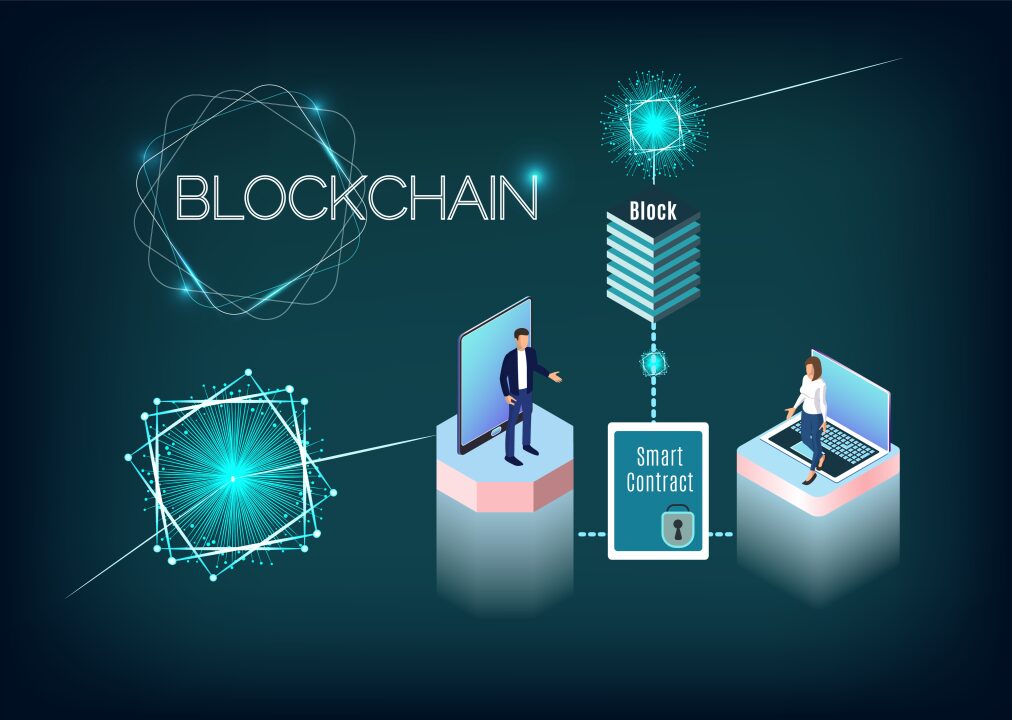In an increasingly digitalized world, the need for authenticity and efficiency in managing legal documents has become more pronounced. Businesses and individuals alike are turning to modern legal solutions, specifically blockchain technology, to enhance the way contracts are created, executed, and verified. Among these innovative advancements, video contracts on blockchain are emerging as a transformative approach, combining the benefits of visual representation with the security and transparency of blockchain.
This article will explore how blockchain video contracts improve authenticity and efficiency, address issues surrounding traditional contracts, and provide insight into why the legal sector is rapidly adopting these innovative solutions.

The Rise of Blockchain in Contract Management
The traditional methods of contract management are often riddled with inefficiencies, high costs, and vulnerabilities. With reliance on paperwork and lengthy approval processes, stakeholders face challenges in ensuring the authenticity and integrity of their agreements. Enter blockchain technology—a decentralized, tamper-resistant ledger that revolutionizes the concept of digital contract management by offering a solution built on transparency and security.
Blockchain’s adoption in the legal sector, specifically through smart contracts, has paved the way for a more reliable and efficient method of handling contracts. In this context, video contracts represent the latest evolution in digital contract management, leveraging both blockchain’s immutability and the communicative power of video to solidify agreement terms.
Video Contracts on Blockchain: How It Works
A blockchain video contract is an agreement recorded in video format and uploaded to a blockchain platform. This video serves as a visual testament to the parties’ intentions, adding a unique layer of clarity and personalization to the contract. Because blockchain technology ensures immutability, once the video is recorded and stored, it cannot be altered, guaranteeing the authenticity of the contract.
Key features of blockchain video contracts include:
- Security in Legal Contracts: Blockchain’s decentralized nature means that no single entity controls the stored data, enhancing security and reducing the risk of tampering.
- Transparency in Contracts: The open ledger system of blockchain technology allows all parties to access and verify the contract’s terms in real-time, establishing transparency.
- Immutability of Contracts: By storing the video on the blockchain, the contract becomes unchangeable, safeguarding its original form and content for future reference.
- Efficiency in Execution: Video contracts allow parties to quickly communicate and confirm the details of their agreement, streamlining the contract execution process.
These features collectively ensure that video contracts on blockchain offer an efficient, secure, and highly reliable alternative to traditional paper-based contracts.
Benefits of Video Contracts on Blockchain
The unique benefits of video contracts on blockchain are multifaceted, addressing common issues in contract management while delivering innovative advantages.
1. Enhanced Authenticity and Personalization
Video contracts add a personal touch to digital agreements, allowing parties to articulate terms and expectations clearly. This visual element fosters trust and understanding, as each party can see and hear the other’s commitments. Blockchain’s immutability further ensures that this authentic representation of intent remains unaltered.
2. Improved Security and Tamper Resistance
Security in legal contracts is paramount, and blockchain is widely regarded for its robust security measures. Storing video contracts on blockchain ensures the contract is encrypted and resistant to unauthorized alterations. This heightened level of security is invaluable in maintaining the integrity of sensitive legal documents.
3. Transparent and Accessible Recordkeeping
Blockchain’s open ledger allows all parties involved to have continuous access to the video contract, fostering transparency in contracts. Stakeholders can independently verify the agreement, reducing the need for intermediaries and lowering associated costs.
4. Streamlined Process and Reduced Administrative Burden
By using video contracts on blockchain, parties can circumvent lengthy documentation processes. Video recording allows for direct communication, while blockchain’s decentralized structure automates aspects of the agreement, making the process more efficient.
5. Cost-Effective and Environmentally Friendly
Using blockchain video contracts reduces the need for physical paperwork, minimizing both costs and environmental impact. This efficiency aligns with the trend toward sustainable digital solutions in contract management.
Use Cases for Blockchain Video Contracts
The versatility of blockchain video contracts extends to various sectors, enhancing efficiency and reliability in different contexts.
- Legal Agreements: Lawyers and clients can record video explanations of contract terms to ensure full comprehension, backed by blockchain’s immutability for added security.
- Business Transactions: Businesses can simplify complex agreements by recording video terms and using blockchain for instant verification, making transactions more efficient and transparent.
- Real Estate Deals: Video contracts enable real estate agents to verify buyer and seller agreements visually, ensuring that both parties are aligned before proceeding with property transfers.

Challenges and Future Prospects of Blockchain Video Contracts
While blockchain video contracts offer immense potential, challenges remain. For example, legal frameworks around video contracts on blockchain are still developing, and there is a learning curve in adopting blockchain technology for contract management. Additionally, data privacy laws and concerns around data storage could affect the widespread adoption of blockchain video contracts in certain regions.
However, the benefits far outweigh the challenges. As legal systems adapt to technological advancements, video contracts are likely to become standard practice, especially in sectors that prioritize security, authenticity, and efficiency in agreements.
Conclusion: The Future of Authentic and Efficient Contracts
Blockchain video contracts exemplify a modern approach to contract management, blending blockchain’s security and transparency with the personal touch of video. By improving the authenticity of contracts and streamlining execution, video contracts on blockchain are poised to reshape legal and business agreements.
With the integration of blockchain in the legal sector, the authenticity and efficiency of contracts are reaching new heights. As businesses and individuals seek ways to enhance transparency, reduce fraud, and simplify contract processes, blockchain video contracts offer a promising solution that aligns with today’s digital-first approach.
Embracing video contracts on blockchain reflects an innovative future for contract management, one that is efficient, secure, and more in tune with the demands of a rapidly evolving digital world.



